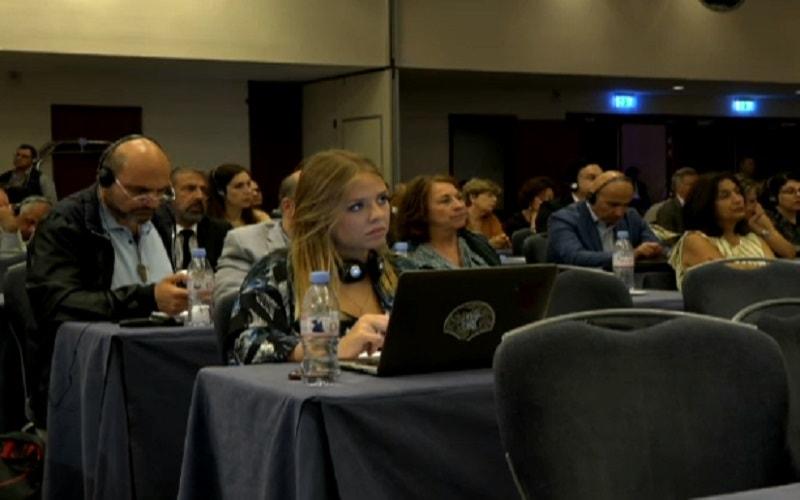Panel discusses the effectiveness of Sanctions on IRGC
A panel of experts in Paris discussed the IRGC and the effect of sanctions on its nefarious activities on the eve of the Free Iran Gathering. The panel was moderated by Lincoln Bloomfield, Ambassador, Distinguished Fellow and Chairman Emeritus at the Stimson Center, former Assistant Secretary of State for Military Affairs.
Panel discusses
Panel Discussion on Iran: IRGC and Sanctions
Bloomfield asked the participants to explain how effective sanctions against the Iranian regime and IRGC in the past and present. “It’s undeniable that sanctions matter and they’ve forced the regime to negotiate,” said Bruno Tertrais, Deputy Director of the Foundation pour la Recherche Stratégique (FRS), adding that, “Obviously targeting the IRGC matters a lot. It’s the core of the regime.”
Tertrais also said that while IRGC controls 20-30 percent of Iran’s economy and will be hard hit by sanctions, sanctions alone are not enough and not the only tool that exists.
“The IRGC will not go down without a fight,” Tertrais said. “Ultimately, change in Iran will come from the exasperation of Iranian people themselves due to the mismanagement, due to corruption and the brutality of the IRGC.”
Eduard Lintner, former Deputy Minister of Interior of Germany concurred, saying, “Sanctions against the Guards is substantial for freedom in Iran and must be complemented by support for the democratic opposition.”
At the very least however, sanctions will limit the IRGC’s capabilities to commit crimes inside and outside Iran Lintner said, because “Crimes cost money.”
Panel discusses
Michael Pregent, Middle East analyst, Hudson Institute, said that this new round of sanctions against the Iranian regime and IRGC is different because “the IRGC and Quds force don’t have an advocate as they had in 2009,” a reference he made to the Obama administration.
Pregent reminded that the Obama administration released Quds Force operatives in Iraq as concessions made to the Iranian regime during the nuclear negotiations, and those operatives engaged in very destabilizing activities. During Obama’s tenure, sanctions brought the regime to the negotiation table, but then the international community gave everything back to the regime, Pregent said.
“The Iran deal collapsed because it was a giveaway to the non-nuclear threat of IRGC,” Pregent said, also noting that “Walking away from the JCPOA actually gave us leverage,” especially on other fronts, including in dealing with the North Korean regime.
Pregent also highlighted the role of recent protests in Iran as a great difference between the last round of sanctions and the current round imposed under the Trump administration. “I wish more western media would cover the protests. These protests are very important,” Pregent said.
“The protesters are blaming the regime for the deal collapsing, not the United States,” Pregent observed. “They blame the regime’s adventurism.”
Robert Joseph, Ambassador, U.S. Special Envoy for Nuclear Nonproliferation and Under Secretary of State for Arms Control and International Security until 2007, who spoke next, started by highlighting the importance of the Free Iran Gathering, which will be held tomorrow. “It’s a great even and I’m happy to be part of it,” he said.
On the issue of sanctions, Joseph said that, “Sanctions can work if they’re part of a broader strategy.” That broader strategy, Joseph underlined, must include support for the people.
Joseph also debunked claims that sanctions against the Iranian regime will put the Iranian people at odds with the international community. “The Iranian people understand what the cause is and appropriately put the blame on the regime,” he said, explaining that the people are fully aware that the regime is corrupt to the core and squanders their money on terrorism across the region.
Joseph recommended that the world must continue to attack the financial networks of the IRGC beyond finance and petroleum, including to mining, engineering and construction. “The IRGC is pervasive in the Iranian economy,” he said.
